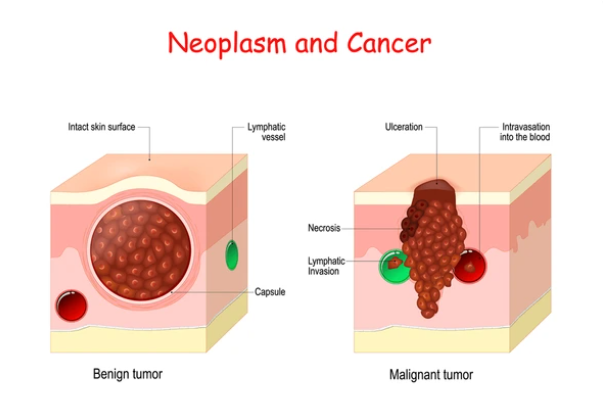A benign neoplasm, commonly referred to as a benign tumor, is a non-cancerous growth that arises from cells multiplying uncontrollably. Unlike malignant tumors, benign neoplasms generally do not spread to other parts of the body and are less likely to pose a serious health threat. However, when pregnant, the presence of a benign neoplasm can still have implications for both the mother and the developing baby. Understanding these effects can help you manage your condition effectively during pregnancy.

What Are Benign Neoplasms?
Benign neoplasms are abnormal growths of tissue that are not cancerous. They can develop in various parts of the body, including the skin, organs, or tissues. Common types of benign neoplasms include:
- Fibroids: These are non-cancerous tumors of the uterus, also known as uterine leiomyomas.
- Lipomas: These are soft, fatty lumps that usually appear just under the skin.
- Adenomas: These are benign tumors that typically develop in glandular tissues, such as the thyroid or adrenal glands.
How Can Benign Neoplasms Affect Pregnancy?
The effects of benign neoplasms on pregnancy largely depend on their location, size, and the symptoms they cause. Here’s how they might impact your pregnancy:
- Symptoms and Discomfort: Depending on their size and location, benign neoplasms can cause discomfort or pain. For example, large fibroids may lead to abdominal pain, pressure, or backache, while a lipoma might cause localized discomfort.
- Obstructive Effects: Some benign tumors can obstruct or compress nearby organs. For instance, large fibroids can potentially distort the uterus or compress the bladder, leading to frequent urination or difficulties with the baby’s positioning.
- Impact on Delivery: The presence of a benign neoplasm, such as a large uterine fibroid, might affect the mode of delivery. In some cases, it could increase the likelihood of requiring a cesarean section due to issues like fetal positioning or obstructed labor.
- Hormonal Changes: Certain benign neoplasms, like adenomas of the pituitary gland, can be influenced by pregnancy-related hormonal changes. This might lead to changes in the growth or symptoms of the tumor.
Monitoring and Managing Benign Neoplasms During Pregnancy
Effective management of benign neoplasms during pregnancy involves close monitoring and a coordinated care approach:
- Regular Check-ups: Regular prenatal visits are essential for monitoring the growth and impact of benign neoplasms. Your healthcare provider may use ultrasound or other imaging techniques to assess the size and location of the tumor and its effects on your pregnancy.
- Symptom Management: Address any symptoms or discomfort associated with the neoplasm. Pain relief and symptom management strategies should be discussed with your healthcare provider to ensure they are safe during pregnancy.
- Collaborative Care: Your obstetrician may collaborate with other specialists, such as a gynecologist or an endocrinologist, depending on the type and location of the benign neoplasm. This team approach helps ensure comprehensive care and addresses any potential complications.
- Treatment Options: In most cases, benign neoplasms do not require treatment during pregnancy unless they cause significant symptoms or complications. If treatment is needed, your healthcare team will consider options that are safe for both you and your baby. For example, certain medications or surgical interventions may be postponed until after delivery if possible.
When to Seek Medical Attention
If you experience significant pain, discomfort, or changes in your symptoms related to a benign neoplasm, contact your healthcare provider promptly. Also, be vigilant about any new symptoms or unusual changes in your health.
Conclusion: Benign neoplasms are non-cancerous growths that can affect pregnancy in various ways, but with appropriate care and monitoring, most can be managed effectively. Regular prenatal visits, symptom management, and a coordinated approach to care are key to ensuring a healthy pregnancy. If you have concerns about a benign neoplasm during pregnancy, don’t hesitate to discuss them with your healthcare provider to receive the best possible care and support.
